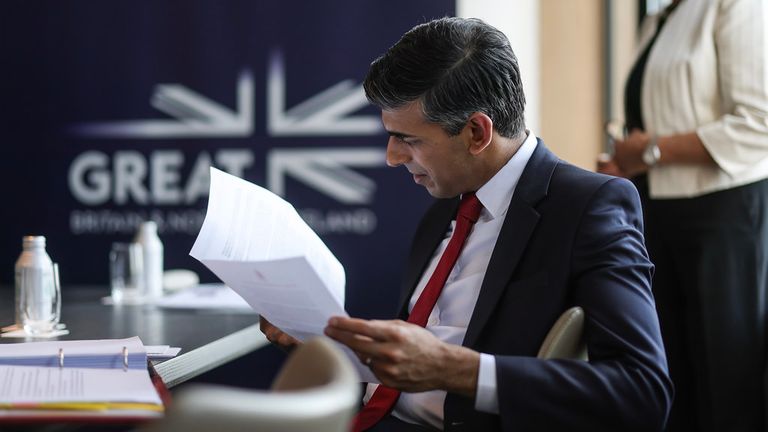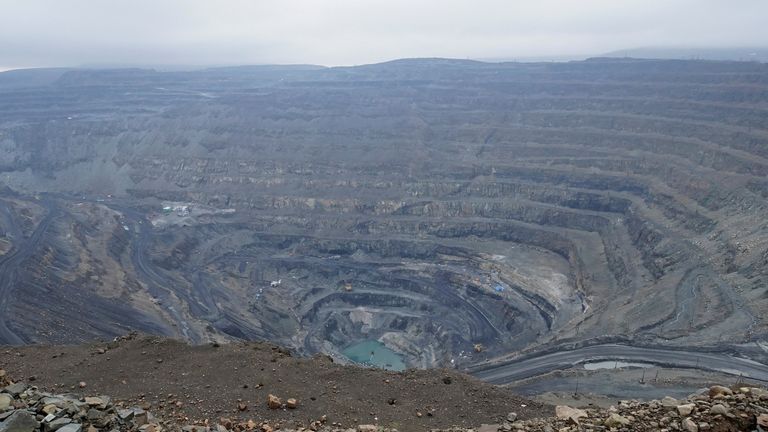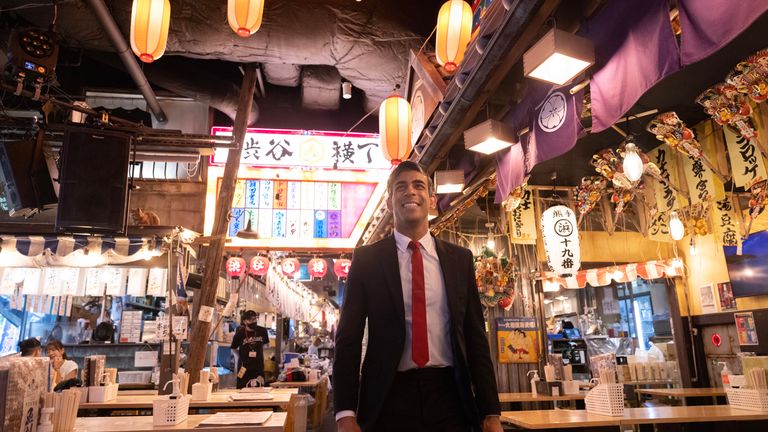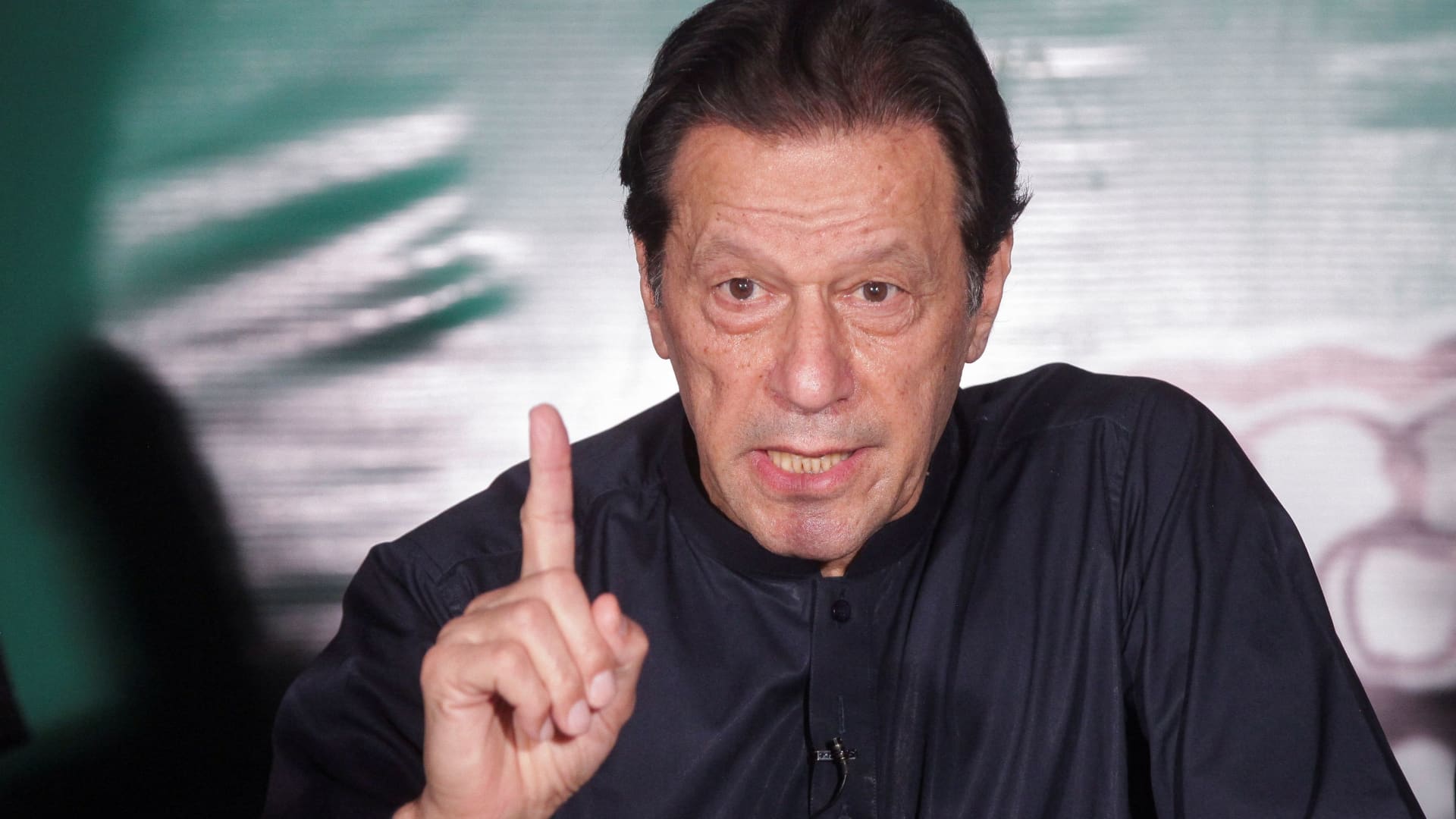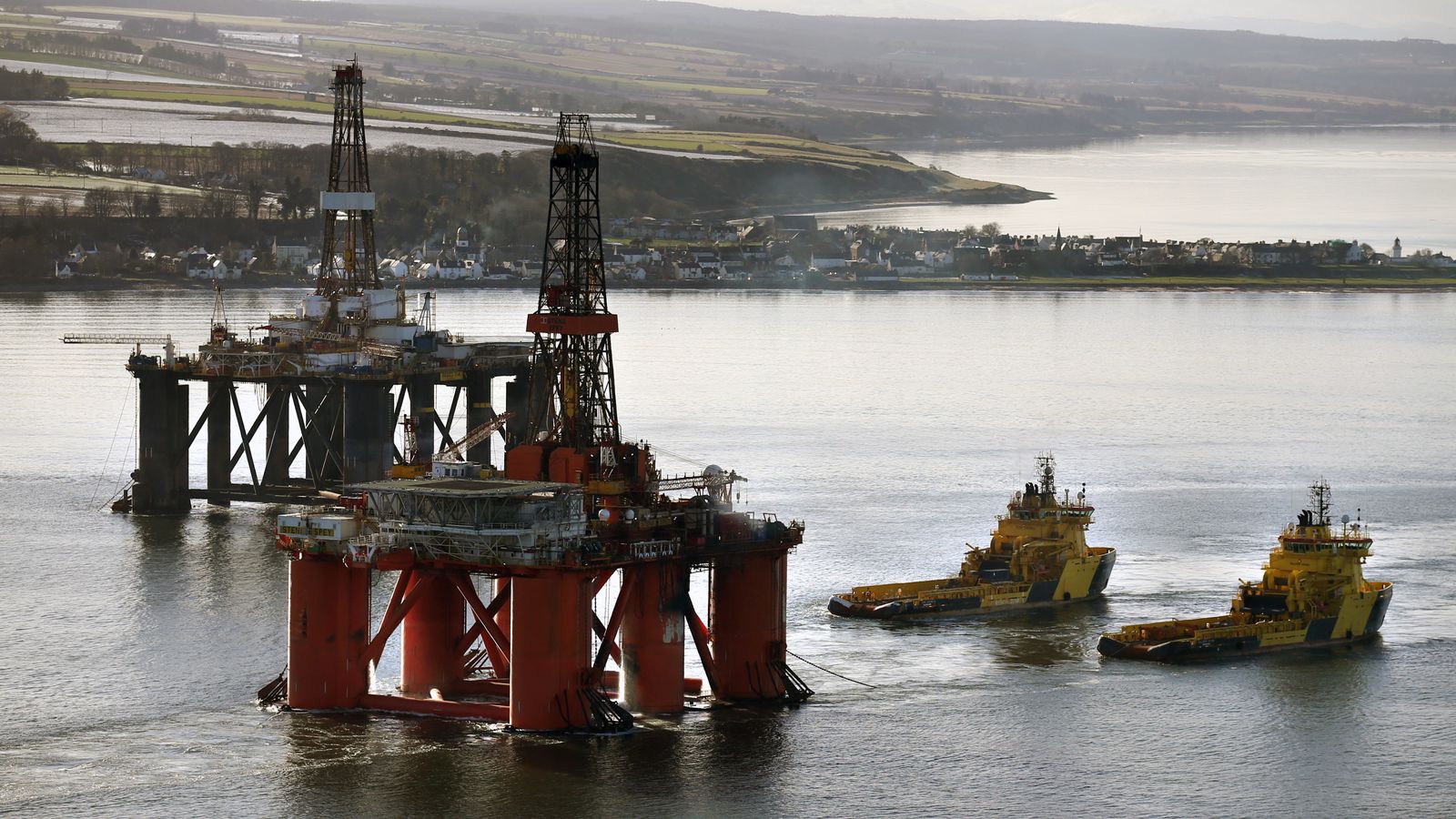Rishi Sunak will announce a ban on Russian diamonds coming to Britain as the prime minister and other G7 leaders step up sanctions against Putin.
The diamond ban is part of a wider package of sanctions as the prime minister and allies use the annual G7 summit in Tokyo to redouble support for Ukraine.
Sanctions will also extend to imports of Russian-origin copper, aluminium and nickel, as well as the freeze on the $4bn (£3.2bn) diamond export market.
Politics latest:
UK ‘engaged in a dialogue’ with EU after ‘existential threat’ warning
The UK is also sanctioning a further 86 individuals and companies from Putin’s military industrial complex.
“Sanctions imposed on Russia by the UK and G7 partners are having a clear and progressive impact in downgrading Putin’s war effort,” the prime minister said.
“The G7 remains unified in the face of the threat from Russia and steadfast in support for Ukraine.”
The prime minister‘s spokesman said the government was expecting all G7 partners to announce sanctions over the weekend in a show of strength against Moscow.
But while the G7 are in lockstep in their approach to Ukraine, the matter of handling an ever-aggressive China – which alongside Ukraine and the global economy is the third policy pillar of this summit – has been a more complicated and contested policy area for the G7.
Read more:
Russia’s economy has weathered the West’s sanctions – but how?
Fresh sanctions for those helping Russian oligarchs
Have economic sanctions on Russia actually worked?
Japan’s Prime Minister Kishida has repeatedly warned that “Ukraine might be Russia tomorrow” as he looks to allies to signal strong support over how to tackle China and the risk of Beijing trying to invade Taiwan.
President Biden has committed to defending Taiwan, but this issue has divided allies, with France President Emmanuel Macron saying on a trip to China last month that Europe should not get “caught up in crises that are not ours.”
The expectation in Hiroshima is that allies can agree language that bridges this divide.
European Commission President Ursula von de Leyen will come up with a formulation it is hoped allies can agree on – that the G7 will focus on “de-risking” rather than “de-coupling” – in other words continuing to engage with China in areas such as trade and climate change, while pursuing policies to protect national security risks.
The expectation is that the G7 will come out of the summit with a united and strong front on Russia and China.
The big unknown of the weekend will be whether they can tilt some of the global south – countries such as Brazil, India and Indonesia – who have been more aligned with Russia and China towards the allies’ standpoint.
Watch too to see if more might be said about longer-term security guarantees for Ukraine once the war is ended.
The prime minister told us on the flight to Japan that the UK wanted to put such arrangements into place “to provide Ukraine with deterrence in the future”.
Whereas Boris Johnson and Donald Trump were often flies in the ointment and at odds with fellow allies, Mr Sunak is trying to lead from the front on the world stage, and he seems to be getting a much warmer reception in Japan than he does at home.

